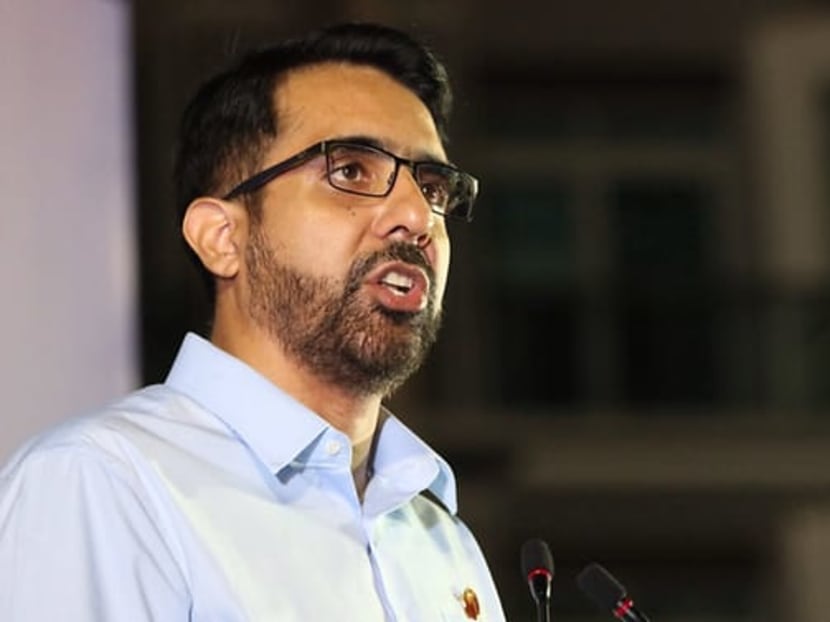Govt should reveal more info on revenue and spending projections so Singaporeans can judge if GST hike is really needed: Pritam Singh
SINGAPORE — The Government should make public its revenue and expenditure projections so that Singaporeans can critically evaluate whether there is really a need to raise the Goods and Services Tax (GST), Workers’ Party chief Pritam Singh said on Friday (Feb 28).

Mr Singh noted that in his Budget speech this year, Deputy Prime Minister Heng Swee Keat had said that the Government put off the rise in GST, initially planned for 2021 onwards, after considering the state of the economy and, more critically, after reviewing its revenue and expenditure projections.
SINGAPORE — The Government should make public its revenue and expenditure projections so that Singaporeans can critically evaluate whether there is really a need to raise the Goods and Services Tax (GST), Workers’ Party chief Pritam Singh said on Friday (Feb 28).
Speaking on the last day of the Budget debate, Mr Singh also called for more information on the reserves and the Government’s plans to use debt to finance long-term infrastructure projects, arguing that more transparency about the Republic’s fiscal position would “advance and mature the conversations that take place in Singapore”.
Mr Singh noted that in his Budget speech this year, Deputy Prime Minister Heng Swee Keat had said that the Government put off the rise in GST, initially planned for 2021 onwards, after considering the state of the economy and, more critically, after reviewing its revenue and expenditure projections.
“Sir, when the WP objected to rise in GST in 2018 amongst other things, it was on account of a lack of information of alternate revenue streams,” Mr Singh said.
He noted that Mr Heng’s response in 2018 was that “one did not need to have information on everything to make a decision on anything”.
However, from the latest Budget speech, “it is obvious the Government relies on revenue and expenditure projections to make decisions”, he added.
“Would the Government make public these projections so that Singaporeans can critically evaluate the necessity of the GST hike?” he said.
This openness would contribute to a more substantive conversation and understanding of Singapore’s fiscal trade-offs, Mr Singh argued.
“Until this clarity is provided, the WP position has not changed. We cannot support a GST hike, especially since this is to be raised in advance, and before the Government’s projections have been put to this House.”
In his Budget speech on Feb 18, Mr Heng, who is also Finance Minister, said the GST hike will still take place by 2025, and also announced a S$6 billion offset package to help cushion the impact on Singaporeans when the increase does take place.
All adult Singaporeans will get cash payouts of between S$700 and S$1,600 over five years, depending on factors such as the type of flat they Iive in.
Still, Mr Singh noted that the GST is a regressive tax that will hit low and middle-income retirees and seniors particularly hard.
“The GST offsets do not last forever, particularly for the middle class,” he added.
In his Budget debate round-up speech on Friday, Mr Heng noted that several MPs had raised concerns about the impending GST hike and its impact on middle and lower-income groups.
He responded that Singapore’s tax system is progressive when all taxes and benefits were taken into consideration.
The top 10 per cent of taxpayers pay about 80 per cent of our personal income tax revenue, while lower- and middle-income households receive proportionately more benefits than the taxes they pay, he said.
He added that the GST hike is needed to fund the spending to support Singaporeans, especially in healthcare.
“Raising the GST, a broad-based tax, to meet a broad-based need is a sustainable approach,” he said.
Mr Singh also pressed the Government to reveal the dollar value of Singapore’s reserves, saying: “One hard truth that we do not hear in this House, notwithstanding greater demands on the expenditure, is that the current Government has had the privilege of far more budgetary elbow room, both political and fiscal, than any other previous Government in Singapore’s history.”
After the inclusion of Temasek in the Net Investment Returns Contribution (NIRC) framework, the NIRC component — which comprises investment returns from the country’s reserves — of the Government’s revenue has doubled, and funds could be set aside for the GST offset package, he noted.
Furthermore, he added, the S$5.6 billion support package to help businesses and households through Covid-19 was not funded from a draw on the reserves, unlike the support package during the Global Financial Crisis about a decade ago.
In 2009, the Government drew S$4.9 billion from past reserves to help Singaporeans through the crisis.
Mr Singh noted that at the last Budget, Mr Heng explained why the dollar value of the reserves could not be disclosed.
“But the answer remains an unsatisfactory one, particularly when the same argument could apply to the overwhelming majority of other democratic societies, but who nonetheless err on the side of fiscal scrutiny and accountability,” he said.
Aside from fiscal sustainability, Mr Singh also touched on the issue of unity, saying that in the context of a democracy, unity “must also encounter a very diverse, edgy and even contradictory views in the effort to find common cause”.
“This is to be encouraged, not discouraged,” he said.
“It is that process of embracing diversity and accommodating political differences that give meaning to a democracy of deeds for the 21st century, and not for a one-party Parliament of decades past.”
To that end, he said WP MPs agree with the Government when they have to and disagree where they must, “in the knowledge that we endeavour for the best outcomes for Singapore, and for a unity of purpose when politics must take a backseat, like during this current Covid-19 outbreak”.








